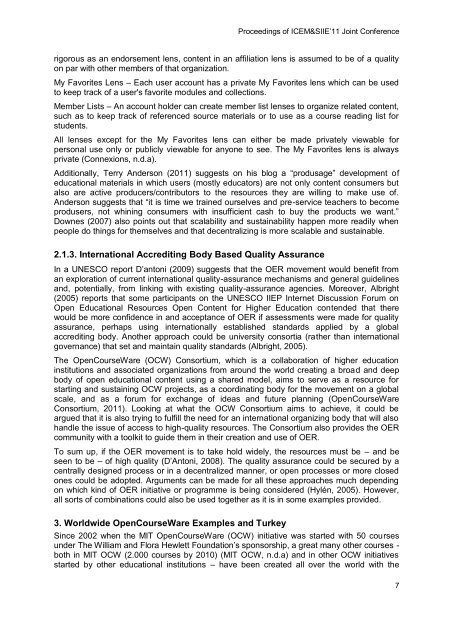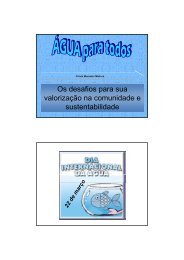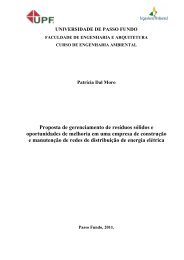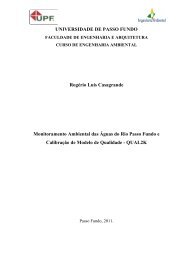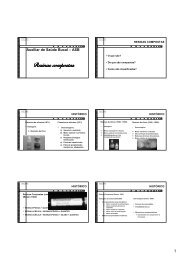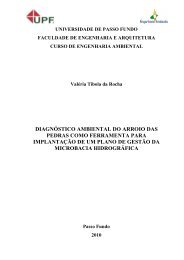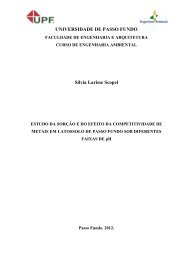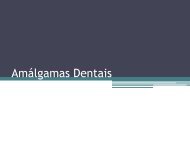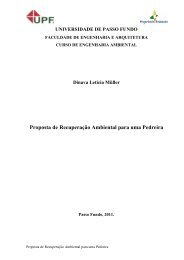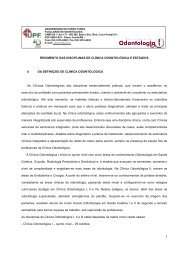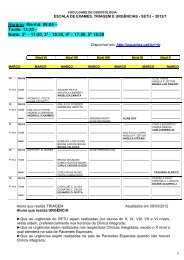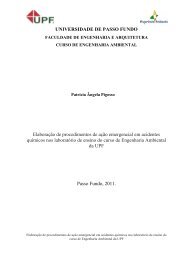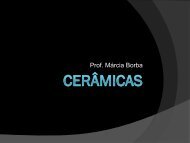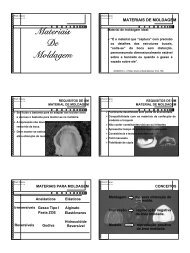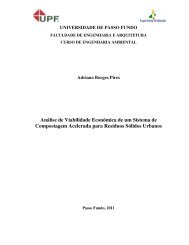- Page 2 and 3: Title: Old Meets New: Media in Educ
- Page 4 and 5: "Old meets new - media in education
- Page 6 and 7: The ‗old wine in new bottles synd
- Page 8 and 9: Um estudo exploratório sobre os us
- Page 10 and 11: Proceedings of ICEM&SIIE‘11 Joint
- Page 12 and 13: Proceedings of ICEM&SIIE‘11 Joint
- Page 14 and 15: Proceedings of ICEM&SIIE‘11 Joint
- Page 18 and 19: Proceedings of ICEM&SIIE‘11 Joint
- Page 20 and 21: Proceedings of ICEM&SIIE‘11 Joint
- Page 22 and 23: Proceedings of ICEM&SIIE‘11 Joint
- Page 24 and 25: Proceedings of ICEM&SIIE‘11 Joint
- Page 26 and 27: Proceedings of ICEM&SIIE‘11 Joint
- Page 28 and 29: Abstract Proceedings of ICEM&SIIE
- Page 30 and 31: Proceedings of ICEM&SIIE‘11 Joint
- Page 32 and 33: Proceedings of ICEM&SIIE‘11 Joint
- Page 34 and 35: Acesso a ambientes virtuais de apre
- Page 36 and 37: Proceedings of ICEM&SIIE‘11 Joint
- Page 38 and 39: Proceedings of ICEM&SIIE‘11 Joint
- Page 40 and 41: Proceedings of ICEM&SIIE‘11 Joint
- Page 42 and 43: Proceedings of ICEM&SIIE‘11 Joint
- Page 44 and 45: Proceedings of ICEM&SIIE‘11 Joint
- Page 46 and 47: Proceedings of ICEM&SIIE‘11 Joint
- Page 48 and 49: Proceedings of ICEM&SIIE‘11 Joint
- Page 50 and 51: Characteristics Authors‟ experien
- Page 52 and 53: Proceedings of ICEM&SIIE‘11 Joint
- Page 54 and 55: Proceedings of ICEM&SIIE‘11 Joint
- Page 56 and 57: Proceedings of ICEM&SIIE‘11 Joint
- Page 58 and 59: Proceedings of ICEM&SIIE‘11 Joint
- Page 60 and 61: 2.5. Algoritmos con Estructuras sin
- Page 62 and 63: Proceedings of ICEM&SIIE‘11 Joint
- Page 64 and 65: Problemas \ Vistas de SRec Multipli
- Page 66 and 67:
Proceedings of ICEM&SIIE‘11 Joint
- Page 68 and 69:
6. Referencias Proceedings of ICEM&
- Page 70 and 71:
Proceedings of ICEM&SIIE‘11 Joint
- Page 72 and 73:
1,00 0,90 0,80 0,70 0,60 0,50 0,40
- Page 74 and 75:
Proceedings of ICEM&SIIE‘11 Joint
- Page 76 and 77:
1. Introduction Proceedings of ICEM
- Page 78 and 79:
Proceedings of ICEM&SIIE‘11 Joint
- Page 80 and 81:
Proceedings of ICEM&SIIE‘11 Joint
- Page 82 and 83:
Proceedings of ICEM&SIIE‘11 Joint
- Page 84 and 85:
Proceedings of ICEM&SIIE‘11 Joint
- Page 86 and 87:
Proceedings of ICEM&SIIE‘11 Joint
- Page 88 and 89:
Proceedings of ICEM&SIIE‘11 Joint
- Page 90 and 91:
Proceedings of ICEM&SIIE‘11 Joint
- Page 92 and 93:
Proceedings of ICEM&SIIE‘11 Joint
- Page 94 and 95:
Proceedings of ICEM&SIIE‘11 Joint
- Page 96 and 97:
Proceedings of ICEM&SIIE‘11 Joint
- Page 98 and 99:
Proceedings of ICEM&SIIE‘11 Joint
- Page 100 and 101:
Proceedings of ICEM&SIIE‘11 Joint
- Page 102 and 103:
Proceedings of ICEM&SIIE‘11 Joint
- Page 104 and 105:
Proceedings of ICEM&SIIE‘11 Joint
- Page 106 and 107:
Proceedings of ICEM&SIIE‘11 Joint
- Page 108 and 109:
Proceedings of ICEM&SIIE‘11 Joint
- Page 110 and 111:
Proceedings of ICEM&SIIE‘11 Joint
- Page 112 and 113:
Proceedings of ICEM&SIIE‘11 Joint
- Page 114 and 115:
Proceedings of ICEM&SIIE‘11 Joint
- Page 116 and 117:
Why? Assuring and enhancing the qua
- Page 118 and 119:
Proceedings of ICEM&SIIE‘11 Joint
- Page 120 and 121:
Sts' Quest (start-modules) Sts' Que
- Page 122 and 123:
Proceedings of ICEM&SIIE‘11 Joint
- Page 124 and 125:
Proceedings of ICEM&SIIE‘11 Joint
- Page 126 and 127:
Proceedings of ICEM&SIIE‘11 Joint
- Page 128 and 129:
Proceedings of ICEM&SIIE‘11 Joint
- Page 130 and 131:
Proceedings of ICEM&SIIE‘11 Joint
- Page 132 and 133:
7. Agradecimentos Proceedings of IC
- Page 134 and 135:
Proceedings of ICEM&SIIE‘11 Joint
- Page 136 and 137:
Proceedings of ICEM&SIIE‘11 Joint
- Page 138 and 139:
Proceedings of ICEM&SIIE‘11 Joint
- Page 140 and 141:
Proceedings of ICEM&SIIE‘11 Joint
- Page 142 and 143:
Proceedings of ICEM&SIIE‘11 Joint
- Page 144 and 145:
4. Resultados Figura 3 Proceedings
- Page 146 and 147:
Proceedings of ICEM&SIIE‘11 Joint
- Page 148 and 149:
Proceedings of ICEM&SIIE‘11 Joint
- Page 150 and 151:
Proceedings of ICEM&SIIE‘11 Joint
- Page 152 and 153:
Proceedings of ICEM&SIIE‘11 Joint
- Page 154 and 155:
Proceedings of ICEM&SIIE‘11 Joint
- Page 156 and 157:
2. Design Instrucional - definiçã
- Page 158 and 159:
Proceedings of ICEM&SIIE‘11 Joint
- Page 160 and 161:
Proceedings of ICEM&SIIE‘11 Joint
- Page 162 and 163:
destinatários; - Clarificação do
- Page 164 and 165:
Proceedings of ICEM&SIIE‘11 Joint
- Page 166 and 167:
Proceedings of ICEM&SIIE‘11 Joint
- Page 168 and 169:
Proceedings of ICEM&SIIE‘11 Joint
- Page 170 and 171:
Proceedings of ICEM&SIIE‘11 Joint
- Page 172 and 173:
Ref. Resposta explicativa 1 2 Proce
- Page 174 and 175:
Razões para a não utilização de
- Page 176 and 177:
Proceedings of ICEM&SIIE‘11 Joint
- Page 178 and 179:
Proceedings of ICEM&SIIE‘11 Joint
- Page 180 and 181:
Proceedings of ICEM&SIIE‘11 Joint
- Page 182 and 183:
Autores Proceedings of ICEM&SIIE‘
- Page 184 and 185:
Proceedings of ICEM&SIIE‘11 Joint
- Page 186 and 187:
Proceedings of ICEM&SIIE‘11 Joint
- Page 188 and 189:
Proceedings of ICEM&SIIE‘11 Joint
- Page 190 and 191:
Proceedings of ICEM&SIIE‘11 Joint
- Page 192 and 193:
Proceedings of ICEM&SIIE‘11 Joint
- Page 194 and 195:
Proceedings of ICEM&SIIE‘11 Joint
- Page 196 and 197:
Subsistema de ensino Sexo Universit
- Page 198 and 199:
coordenação de tópicos de discus
- Page 200 and 201:
Proceedings of ICEM&SIIE‘11 Joint
- Page 202 and 203:
Proceedings of ICEM&SIIE‘11 Joint
- Page 204 and 205:
2. Integration of ICT tools at the
- Page 206 and 207:
Proceedings of ICEM&SIIE‘11 Joint
- Page 208 and 209:
Proceedings of ICEM&SIIE‘11 Joint
- Page 210 and 211:
Proceedings of ICEM&SIIE‘11 Joint
- Page 212 and 213:
Proceedings of ICEM&SIIE‘11 Joint
- Page 214 and 215:
Proceedings of ICEM&SIIE‘11 Joint
- Page 216 and 217:
Proceedings of ICEM&SIIE‘11 Joint
- Page 218 and 219:
Proceedings of ICEM&SIIE‘11 Joint
- Page 220 and 221:
Proceedings of ICEM&SIIE‘11 Joint
- Page 222 and 223:
Proceedings of ICEM&SIIE‘11 Joint
- Page 224 and 225:
Proceedings of ICEM&SIIE‘11 Joint
- Page 226 and 227:
Proceedings of ICEM&SIIE‘11 Joint
- Page 228 and 229:
Proceedings of ICEM&SIIE‘11 Joint
- Page 230 and 231:
Proceedings of ICEM&SIIE‘11 Joint
- Page 232 and 233:
Proceedings of ICEM&SIIE‘11 Joint
- Page 234 and 235:
Proceedings of ICEM&SIIE‘11 Joint
- Page 236 and 237:
Proceedings of ICEM&SIIE‘11 Joint
- Page 238 and 239:
Proceedings of ICEM&SIIE‘11 Joint
- Page 240 and 241:
Proceedings of ICEM&SIIE‘11 Joint
- Page 242 and 243:
Proceedings of ICEM&SIIE‘11 Joint
- Page 244 and 245:
Proceedings of ICEM&SIIE‘11 Joint
- Page 246 and 247:
Count Crosstab Proceedings of ICEM&
- Page 248 and 249:
Proceedings of ICEM&SIIE‘11 Joint
- Page 250 and 251:
Proceedings of ICEM&SIIE‘11 Joint
- Page 252 and 253:
Proceedings of ICEM&SIIE‘11 Joint
- Page 254 and 255:
5. Methodology Proceedings of ICEM&
- Page 256 and 257:
Proceedings of ICEM&SIIE‘11 Joint
- Page 258 and 259:
Proceedings of ICEM&SIIE‘11 Joint
- Page 260 and 261:
Proceedings of ICEM&SIIE‘11 Joint
- Page 262 and 263:
Proceedings of ICEM&SIIE‘11 Joint
- Page 264 and 265:
Proceedings of ICEM&SIIE‘11 Joint
- Page 266 and 267:
Proceedings of ICEM&SIIE‘11 Joint
- Page 268 and 269:
Proceedings of ICEM&SIIE‘11 Joint
- Page 270 and 271:
Proceedings of ICEM&SIIE‘11 Joint
- Page 272 and 273:
Proceedings of ICEM&SIIE‘11 Joint
- Page 274 and 275:
Proceedings of ICEM&SIIE‘11 Joint
- Page 276 and 277:
Proceedings of ICEM&SIIE‘11 Joint
- Page 278 and 279:
Figure 5 - Film discussion on forum
- Page 280 and 281:
Proceedings of ICEM&SIIE‘11 Joint
- Page 282 and 283:
Proceedings of ICEM&SIIE‘11 Joint
- Page 284 and 285:
Proceedings of ICEM&SIIE‘11 Joint
- Page 286 and 287:
Proceedings of ICEM&SIIE‘11 Joint
- Page 288 and 289:
Proceedings of ICEM&SIIE‘11 Joint
- Page 290 and 291:
Proceedings of ICEM&SIIE‘11 Joint
- Page 292 and 293:
Proceedings of ICEM&SIIE‘11 Joint
- Page 294 and 295:
Proceedings of ICEM&SIIE‘11 Joint
- Page 296 and 297:
Proceedings of ICEM&SIIE‘11 Joint
- Page 298 and 299:
Proceedings of ICEM&SIIE‘11 Joint
- Page 300 and 301:
The tutor‘s messages codes 1. Est
- Page 302 and 303:
Proceedings of ICEM&SIIE‘11 Joint
- Page 304 and 305:
Proceedings of ICEM&SIIE‘11 Joint
- Page 306 and 307:
Proceedings of ICEM&SIIE‘11 Joint
- Page 308 and 309:
Proceedings of ICEM&SIIE‘11 Joint
- Page 310 and 311:
In Figure 1, we see: Proceedings of
- Page 312 and 313:
Proceedings of ICEM&SIIE‘11 Joint
- Page 314 and 315:
Knowing distance education Definit
- Page 316 and 317:
Proceedings of ICEM&SIIE‘11 Joint
- Page 318 and 319:
Proceedings of ICEM&SIIE‘11 Joint
- Page 320 and 321:
Proceedings of ICEM&SIIE‘11 Joint
- Page 322 and 323:
―1. Etiquette: electronic standar
- Page 324 and 325:
Proceedings of ICEM&SIIE‘11 Joint
- Page 326 and 327:
Proceedings of ICEM&SIIE‘11 Joint
- Page 328 and 329:
Proceedings of ICEM&SIIE‘11 Joint
- Page 330 and 331:
Proceedings of ICEM&SIIE‘11 Joint
- Page 332 and 333:
Proceedings of ICEM&SIIE‘11 Joint
- Page 334 and 335:
5.3. Cliques Figure 7 - A ‗dense
- Page 336 and 337:
Proceedings of ICEM&SIIE‘11 Joint
- Page 338 and 339:
Proceedings of ICEM&SIIE‘11 Joint
- Page 340 and 341:
Proceedings of ICEM&SIIE‘11 Joint
- Page 342 and 343:
Proceedings of ICEM&SIIE‘11 Joint
- Page 344 and 345:
Proceedings of ICEM&SIIE‘11 Joint
- Page 346 and 347:
Proceedings of ICEM&SIIE‘11 Joint
- Page 348 and 349:
Proceedings of ICEM&SIIE‘11 Joint
- Page 350 and 351:
Proceedings of ICEM&SIIE‘11 Joint
- Page 352 and 353:
Figura 6 - Diagrama de caso de uso.
- Page 354 and 355:
Proceedings of ICEM&SIIE‘11 Joint
- Page 356 and 357:
Proceedings of ICEM&SIIE‘11 Joint
- Page 358 and 359:
Proceedings of ICEM&SIIE‘11 Joint
- Page 360 and 361:
2.2. Aprendizagem 2.0 Proceedings o
- Page 362 and 363:
Proceedings of ICEM&SIIE‘11 Joint
- Page 364 and 365:
Proceedings of ICEM&SIIE‘11 Joint
- Page 366 and 367:
Proceedings of ICEM&SIIE‘11 Joint
- Page 368 and 369:
Proceedings of ICEM&SIIE‘11 Joint
- Page 370 and 371:
2. Applying marketing mix model Pro
- Page 372 and 373:
Proceedings of ICEM&SIIE‘11 Joint
- Page 374 and 375:
Appendix A Proceedings of ICEM&SIIE
- Page 376 and 377:
Appendix C Proceedings of ICEM&SIIE
- Page 378 and 379:
Proceedings of ICEM&SIIE‘11 Joint
- Page 380 and 381:
Appendix E Screenshot of Lamar Univ
- Page 382 and 383:
Proceedings of ICEM&SIIE‘11 Joint
- Page 384 and 385:
Proceedings of ICEM&SIIE‘11 Joint
- Page 386 and 387:
Proceedings of ICEM&SIIE‘11 Joint
- Page 388 and 389:
8. References Proceedings of ICEM&S
- Page 390 and 391:
Proceedings of ICEM&SIIE‘11 Joint
- Page 392 and 393:
Proceedings of ICEM&SIIE‘11 Joint
- Page 394 and 395:
Proceedings of ICEM&SIIE‘11 Joint
- Page 396 and 397:
Proceedings of ICEM&SIIE‘11 Joint
- Page 398 and 399:
Proceedings of ICEM&SIIE‘11 Joint
- Page 400 and 401:
Proceedings of ICEM&SIIE‘11 Joint
- Page 402 and 403:
Figure 4 - The construction of equi
- Page 404 and 405:
Proceedings of ICEM&SIIE‘11 Joint
- Page 406 and 407:
Proceedings of ICEM&SIIE‘11 Joint
- Page 408 and 409:
Proceedings of ICEM&SIIE‘11 Joint
- Page 410 and 411:
Proceedings of ICEM&SIIE‘11 Joint
- Page 412 and 413:
Proceedings of ICEM&SIIE‘11 Joint
- Page 414 and 415:
Proceedings of ICEM&SIIE‘11 Joint
- Page 416 and 417:
Proceedings of ICEM&SIIE‘11 Joint
- Page 418 and 419:
Proceedings of ICEM&SIIE‘11 Joint
- Page 420 and 421:
Proceedings of ICEM&SIIE‘11 Joint
- Page 422 and 423:
Proceedings of ICEM&SIIE‘11 Joint
- Page 424 and 425:
Proceedings of ICEM&SIIE‘11 Joint
- Page 426 and 427:
Proceedings of ICEM&SIIE‘11 Joint
- Page 428 and 429:
Proceedings of ICEM&SIIE‘11 Joint
- Page 430 and 431:
Proceedings of ICEM&SIIE‘11 Joint
- Page 432 and 433:
Proceedings of ICEM&SIIE‘11 Joint
- Page 434 and 435:
4.1. Comunicación Edu-GAL gadgets
- Page 436 and 437:
Proceedings of ICEM&SIIE‘11 Joint
- Page 438 and 439:
5. Conclusiones Ejemplo 4 - Vista l
- Page 440 and 441:
Proceedings of ICEM&SIIE‘11 Joint
- Page 442 and 443:
Proceedings of ICEM&SIIE‘11 Joint
- Page 444 and 445:
Domínio Original Domínio Novo: na
- Page 446 and 447:
Proceedings of ICEM&SIIE‘11 Joint
- Page 448 and 449:
Proceedings of ICEM&SIIE‘11 Joint
- Page 450 and 451:
Figura 10 - Amostra dos Professores
- Page 452 and 453:
Proceedings of ICEM&SIIE‘11 Joint
- Page 454 and 455:
Proceedings of ICEM&SIIE‘11 Joint
- Page 456 and 457:
Proceedings of ICEM&SIIE‘11 Joint
- Page 458 and 459:
Proceedings of ICEM&SIIE‘11 Joint
- Page 460 and 461:
Proceedings of ICEM&SIIE‘11 Joint
- Page 462 and 463:
Proceedings of ICEM&SIIE‘11 Joint
- Page 464 and 465:
Proceedings of ICEM&SIIE‘11 Joint
- Page 466 and 467:
Proceedings of ICEM&SIIE‘11 Joint
- Page 468 and 469:
Nivel de la taxonomía Descripción
- Page 470 and 471:
Proceedings of ICEM&SIIE‘11 Joint
- Page 472 and 473:
INDICADOR I4 Proceedings of ICEM&SI
- Page 474 and 475:
Proceedings of ICEM&SIIE‘11 Joint
- Page 476 and 477:
Proceedings of ICEM&SIIE‘11 Joint
- Page 478 and 479:
Proceedings of ICEM&SIIE‘11 Joint
- Page 480 and 481:
2nd week online 3rd and 4th weeks o
- Page 482 and 483:
Proceedings of ICEM&SIIE‘11 Joint
- Page 484 and 485:
Proceedings of ICEM&SIIE‘11 Joint
- Page 486 and 487:
Proceedings of ICEM&SIIE‘11 Joint
- Page 488 and 489:
Proceedings of ICEM&SIIE‘11 Joint
- Page 490 and 491:
Proceedings of ICEM&SIIE‘11 Joint
- Page 492 and 493:
Proceedings of ICEM&SIIE‘11 Joint
- Page 494 and 495:
Instrumentos de Recolha de Informa
- Page 496 and 497:
Proceedings of ICEM&SIIE‘11 Joint
- Page 498 and 499:
- Apresentar ―disposição‖ par
- Page 500 and 501:
Proceedings of ICEM&SIIE‘11 Joint
- Page 502 and 503:
Proceedings of ICEM&SIIE‘11 Joint
- Page 504 and 505:
Proceedings of ICEM&SIIE‘11 Joint
- Page 506 and 507:
Proceedings of ICEM&SIIE‘11 Joint
- Page 508 and 509:
Proceedings of ICEM&SIIE‘11 Joint
- Page 510 and 511:
Proceedings of ICEM&SIIE‘11 Joint
- Page 512 and 513:
Proceedings of ICEM&SIIE‘11 Joint
- Page 514 and 515:
Proceedings of ICEM&SIIE‘11 Joint
- Page 516 and 517:
Proceedings of ICEM&SIIE‘11 Joint
- Page 518 and 519:
a) Reutilização: Proceedings of I
- Page 520 and 521:
c) ORG_03: Proceedings of ICEM&SIIE
- Page 522 and 523:
Proceedings of ICEM&SIIE‘11 Joint
- Page 524 and 525:
Proceedings of ICEM&SIIE‘11 Joint
- Page 526 and 527:
Proceedings of ICEM&SIIE‘11 Joint
- Page 528 and 529:
Proceedings of ICEM&SIIE‘11 Joint
- Page 530 and 531:
Figura 4 - Marcadores do browser a
- Page 532 and 533:
Proceedings of ICEM&SIIE‘11 Joint
- Page 534 and 535:
Proceedings of ICEM&SIIE‘11 Joint
- Page 536 and 537:
Abstract Proceedings of ICEM&SIIE
- Page 538 and 539:
Proceedings of ICEM&SIIE‘11 Joint
- Page 540 and 541:
Proceedings of ICEM&SIIE‘11 Joint
- Page 542 and 543:
Proceedings of ICEM&SIIE‘11 Joint
- Page 544 and 545:
Abstract Proceedings of ICEM&SIIE
- Page 546 and 547:
Proceedings of ICEM&SIIE‘11 Joint
- Page 548 and 549:
Proceedings of ICEM&SIIE‘11 Joint
- Page 550 and 551:
Proceedings of ICEM&SIIE‘11 Joint
- Page 552 and 553:
3. Method 3.1. The learning and tea
- Page 554 and 555:
Proceedings of ICEM&SIIE‘11 Joint
- Page 556 and 557:
Proceedings of ICEM&SIIE‘11 Joint
- Page 558 and 559:
4.6. Importance of techno-pedagogic
- Page 560 and 561:
Proceedings of ICEM&SIIE‘11 Joint
- Page 562 and 563:
Proceedings of ICEM&SIIE‘11 Joint
- Page 564 and 565:
Abstract Proceedings of ICEM&SIIE
- Page 566 and 567:
Proceedings of ICEM&SIIE‘11 Joint
- Page 568 and 569:
Proceedings of ICEM&SIIE‘11 Joint
- Page 570 and 571:
Proceedings of ICEM&SIIE‘11 Joint
- Page 572 and 573:
Proceedings of ICEM&SIIE‘11 Joint
- Page 574 and 575:
Proceedings of ICEM&SIIE‘11 Joint
- Page 576 and 577:
Proceedings of ICEM&SIIE‘11 Joint
- Page 578 and 579:
Proceedings of ICEM&SIIE‘11 Joint
- Page 580 and 581:
Proceedings of ICEM&SIIE‘11 Joint
- Page 582 and 583:
3 Dia Europeu sem Carros 4 Smog em
- Page 584 and 585:
Proceedings of ICEM&SIIE‘11 Joint
- Page 586 and 587:
Proceedings of ICEM&SIIE‘11 Joint
- Page 588 and 589:
Proceedings of ICEM&SIIE‘11 Joint
- Page 590 and 591:
Proceedings of ICEM&SIIE‘11 Joint
- Page 592 and 593:
Proceedings of ICEM&SIIE‘11 Joint
- Page 594 and 595:
Proceedings of ICEM&SIIE‘11 Joint
- Page 596 and 597:
Proceedings of ICEM&SIIE‘11 Joint
- Page 598 and 599:
7. Referências bibliográficas Pro
- Page 600 and 601:
Proceedings of ICEM&SIIE‘11 Joint
- Page 602 and 603:
Proceedings of ICEM&SIIE‘11 Joint
- Page 604 and 605:
Figure 3 - Knowledge degree (0-5) o
- Page 606 and 607:
Proceedings of ICEM&SIIE‘11 Joint
- Page 608 and 609:
8. References Proceedings of ICEM&S
- Page 610 and 611:
Proceedings of ICEM&SIIE‘11 Joint
- Page 612 and 613:
Proceedings of ICEM&SIIE‘11 Joint
- Page 614 and 615:
Descripción de la Tarea Proceeding
- Page 616 and 617:
Proceedings of ICEM&SIIE‘11 Joint
- Page 618 and 619:
Proceedings of ICEM&SIIE‘11 Joint
- Page 620 and 621:
Proceedings of ICEM&SIIE‘11 Joint
- Page 622 and 623:
4. Generación de visualizaciones P
- Page 624 and 625:
Resultados Figura 3. Proceso de eva
- Page 626 and 627:
Resultados Grupo de tratamiento Gru
- Page 628 and 629:
Discusión Aspecto a valorar Porcen
- Page 630 and 631:
Discusión Proceedings of ICEM&SIIE
- Page 632 and 633:
Proceedings of ICEM&SIIE‘11 Joint
- Page 634 and 635:
Proceedings of ICEM&SIIE‘11 Joint
- Page 636 and 637:
Proceedings of ICEM&SIIE‘11 Joint
- Page 638 and 639:
Proceedings of ICEM&SIIE‘11 Joint
- Page 640 and 641:
Resumo Proceedings of ICEM&SIIE‘1
- Page 642 and 643:
Proceedings of ICEM&SIIE‘11 Joint
- Page 644 and 645:
Proceedings of ICEM&SIIE‘11 Joint
- Page 646 and 647:
Proceedings of ICEM&SIIE‘11 Joint
- Page 648 and 649:
Proceedings of ICEM&SIIE‘11 Joint
- Page 650 and 651:
Proceedings of ICEM&SIIE‘11 Joint
- Page 652 and 653:
Proceedings of ICEM&SIIE‘11 Joint
- Page 654 and 655:
Proceedings of ICEM&SIIE‘11 Joint
- Page 656 and 657:
Proceedings of ICEM&SIIE‘11 Joint
- Page 658 and 659:
Proceedings of ICEM&SIIE‘11 Joint
- Page 660 and 661:
Proceedings of ICEM&SIIE‘11 Joint
- Page 662 and 663:
Proceedings of ICEM&SIIE‘11 Joint
- Page 664 and 665:
Proceedings of ICEM&SIIE‘11 Joint
- Page 666 and 667:
Proceedings of ICEM&SIIE‘11 Joint
- Page 668 and 669:
Proceedings of ICEM&SIIE‘11 Joint
- Page 670 and 671:
Proceedings of ICEM&SIIE‘11 Joint
- Page 672 and 673:
Proceedings of ICEM&SIIE‘11 Joint
- Page 674 and 675:
Proceedings of ICEM&SIIE‘11 Joint
- Page 676 and 677:
Proceedings of ICEM&SIIE‘11 Joint
- Page 678 and 679:
Proceedings of ICEM&SIIE‘11 Joint
- Page 680 and 681:
Proceedings of ICEM&SIIE‘11 Joint
- Page 682 and 683:
Proceedings of ICEM&SIIE‘11 Joint
- Page 684 and 685:
Proceedings of ICEM&SIIE‘11 Joint
- Page 686 and 687:
6. Referências Proceedings of ICEM
- Page 688 and 689:
Proceedings of ICEM&SIIE‘11 Joint
- Page 690 and 691:
3. Methodology Proceedings of ICEM&
- Page 692 and 693:
Proceedings of ICEM&SIIE‘11 Joint
- Page 694 and 695:
Machine Process Number of steps tes
- Page 696 and 697:
Proceedings of ICEM&SIIE‘11 Joint
- Page 698 and 699:
Proceedings of ICEM&SIIE‘11 Joint
- Page 700 and 701:
2. Formação Inicial de Professore
- Page 702 and 703:
4. Planilhas Eletrônicas Proceedin
- Page 704 and 705:
Proceedings of ICEM&SIIE‘11 Joint
- Page 706 and 707:
Proceedings of ICEM&SIIE‘11 Joint
- Page 708 and 709:
Proceedings of ICEM&SIIE‘11 Joint
- Page 710 and 711:
Figura 8 - Gráfico com os tipos de
- Page 712 and 713:
Proceedings of ICEM&SIIE‘11 Joint
- Page 714 and 715:
Proceedings of ICEM&SIIE‘11 Joint
- Page 716 and 717:
Proceedings of ICEM&SIIE‘11 Joint
- Page 718 and 719:
Proceedings of ICEM&SIIE‘11 Joint
- Page 720 and 721:
Proceedings of ICEM&SIIE‘11 Joint
- Page 722 and 723:
Abstract Proceedings of ICEM&SIIE
- Page 724 and 725:
Proceedings of ICEM&SIIE‘11 Joint
- Page 726 and 727:
Proceedings of ICEM&SIIE‘11 Joint
- Page 728 and 729:
Proceedings of ICEM&SIIE‘11 Joint
- Page 730 and 731:
Proceedings of ICEM&SIIE‘11 Joint
- Page 732 and 733:
Proceedings of ICEM&SIIE‘11 Joint
- Page 734 and 735:
Proceedings of ICEM&SIIE‘11 Joint
- Page 736 and 737:
Proceedings of ICEM&SIIE‘11 Joint
- Page 738 and 739:
Proceedings of ICEM&SIIE‘11 Joint
- Page 740 and 741:
Figure 2 - Example an ID card still
- Page 742 and 743:
Proceedings of ICEM&SIIE‘11 Joint
- Page 744 and 745:
STEP 1 + 2 STEP 3 PATH of Source 2
- Page 746 and 747:
VM Components Best practices B P1 B
- Page 748 and 749:
5. Conclusions Proceedings of ICEM&
- Page 750 and 751:
Proceedings of ICEM&SIIE‘11 Joint
- Page 752 and 753:
Proceedings of ICEM&SIIE‘11 Joint
- Page 754 and 755:
3. Disconnect between theory and pr
- Page 756 and 757:
Proceedings of ICEM&SIIE‘11 Joint
- Page 758 and 759:
Proceedings of ICEM&SIIE‘11 Joint
- Page 760 and 761:
Proceedings of ICEM&SIIE‘11 Joint
- Page 762 and 763:
Proceedings of ICEM&SIIE‘11 Joint
- Page 764 and 765:
Proceedings of ICEM&SIIE‘11 Joint
- Page 766 and 767:
Proceedings of ICEM&SIIE‘11 Joint
- Page 768 and 769:
Proceedings of ICEM&SIIE‘11 Joint
- Page 770 and 771:
Proceedings of ICEM&SIIE‘11 Joint
- Page 772 and 773:
2 Theoretical framework Proceedings
- Page 774 and 775:
Proceedings of ICEM&SIIE‘11 Joint
- Page 776 and 777:
Proceedings of ICEM&SIIE‘11 Joint
- Page 778 and 779:
Proceedings of ICEM&SIIE‘11 Joint
- Page 780 and 781:
Proceedings of ICEM&SIIE‘11 Joint
- Page 782 and 783:
2. O que é um portefólio? Proceed
- Page 784 and 785:
Proceedings of ICEM&SIIE‘11 Joint
- Page 786 and 787:
Proceedings of ICEM&SIIE‘11 Joint
- Page 788 and 789:
Proceedings of ICEM&SIIE‘11 Joint
- Page 790 and 791:
Proceedings of ICEM&SIIE‘11 Joint
- Page 792 and 793:
Proceedings of ICEM&SIIE‘11 Joint
- Page 794 and 795:
Sequência 01 Objetivo: Verbalizar
- Page 796 and 797:
Proceedings of ICEM&SIIE‘11 Joint
- Page 798 and 799:
Proceedings of ICEM&SIIE‘11 Joint
- Page 800 and 801:
Proceedings of ICEM&SIIE‘11 Joint
- Page 802 and 803:
Proceedings of ICEM&SIIE‘11 Joint
- Page 804 and 805:
Proceedings of ICEM&SIIE‘11 Joint
- Page 806 and 807:
Proceedings of ICEM&SIIE‘11 Joint
- Page 808 and 809:
Proceedings of ICEM&SIIE‘11 Joint
- Page 810 and 811:
Proceedings of ICEM&SIIE‘11 Joint
- Page 812 and 813:
Proceedings of ICEM&SIIE‘11 Joint
- Page 814 and 815:
Proceedings of ICEM&SIIE‘11 Joint
- Page 816 and 817:
Proceedings of ICEM&SIIE‘11 Joint
- Page 818 and 819:
Conclusions Proceedings of ICEM&SII
- Page 820 and 821:
Proceedings of ICEM&SIIE‘11 Joint
- Page 822 and 823:
Proceedings of ICEM&SIIE‘11 Joint
- Page 824 and 825:
Proceedings of ICEM&SIIE‘11 Joint
- Page 826 and 827:
Proceedings of ICEM&SIIE‘11 Joint
- Page 828 and 829:
Proceedings of ICEM&SIIE‘11 Joint
- Page 830 and 831:
Proceedings of ICEM&SIIE‘11 Joint
- Page 832 and 833:
Proceedings of ICEM&SIIE‘11 Joint
- Page 834 and 835:
A B C Proceedings of ICEM&SIIE‘11
- Page 836 and 837:
Proceedings of ICEM&SIIE‘11 Joint
- Page 838 and 839:
Proceedings of ICEM&SIIE‘11 Joint
- Page 840 and 841:
Proceedings of ICEM&SIIE‘11 Joint
- Page 842 and 843:
Proceedings of ICEM&SIIE‘11 Joint
- Page 844 and 845:
Proceedings of ICEM&SIIE‘11 Joint
- Page 846 and 847:
Proceedings of ICEM&SIIE‘11 Joint
- Page 848 and 849:
Proceedings of ICEM&SIIE‘11 Joint
- Page 850 and 851:
POSTERS Proceedings of ICEM&SIIE‘
- Page 852 and 853:
Proceedings of ICEM&SIIE‘11 Joint
- Page 854 and 855:
Proceedings of ICEM&SIIE‘11 Joint
- Page 856 and 857:
Proceedings of ICEM&SIIE‘11 Joint
- Page 858 and 859:
Proceedings of ICEM&SIIE‘11 Joint
- Page 860 and 861:
Proceedings of ICEM&SIIE‘11 Joint
- Page 862 and 863:
Proceedings of ICEM&SIIE‘11 Joint
- Page 864 and 865:
Proceedings of ICEM&SIIE‘11 Joint
- Page 866 and 867:
Proceedings of ICEM&SIIE‘11 Joint
- Page 868 and 869:
References Proceedings of ICEM&SIIE
- Page 870 and 871:
Proceedings of ICEM&SIIE‘11 Joint
- Page 872 and 873:
Proceedings of ICEM&SIIE‘11 Joint
- Page 874 and 875:
Proceedings of ICEM&SIIE‘11 Joint
- Page 876 and 877:
Proceedings of ICEM&SIIE‘11 Joint
- Page 878 and 879:
Proceedings of ICEM&SIIE‘11 Joint
- Page 880 and 881:
Proceedings of ICEM&SIIE‘11 Joint
- Page 882 and 883:
Proceedings of ICEM&SIIE‘11 Joint
- Page 884 and 885:
Proceedings of ICEM&SIIE‘11 Joint
- Page 886 and 887:
Proceedings of ICEM&SIIE‘11 Joint
- Page 888 and 889:
Proceedings of ICEM&SIIE‘11 Joint
- Page 890 and 891:
Proceedings of ICEM&SIIE‘11 Joint
- Page 892 and 893:
Proceedings of ICEM&SIIE‘11 Joint
- Page 894 and 895:
WORKSHOPS Proceedings of ICEM&SIIE
- Page 896 and 897:
Proceedings of ICEM&SIIE‘11 Joint
- Page 898 and 899:
Goal Proceedings of ICEM&SIIE‘11
- Page 900 and 901:
References Proceedings of ICEM&SIIE
- Page 902 and 903:
Objetivos Proceedings of ICEM&SIIE
- Page 904 and 905:
Goal(s) Proceedings of ICEM&SIIE‘
- Page 906 and 907:
Proceedings of ICEM&SIIE‘11 Joint
- Page 908 and 909:
Proceedings of ICEM&SIIE‘11 Joint
- Page 910 and 911:
Proceedings of ICEM&SIIE‘11 Joint
- Page 912 and 913:
Proceedings of ICEM&SIIE‘11 Joint
- Page 914 and 915:
Goal Proceedings of ICEM&SIIE‘11
- Page 916 and 917:
Proceedings of ICEM&SIIE‘11 Joint
- Page 918:
Proceedings of ICEM&SIIE‘11 Joint


